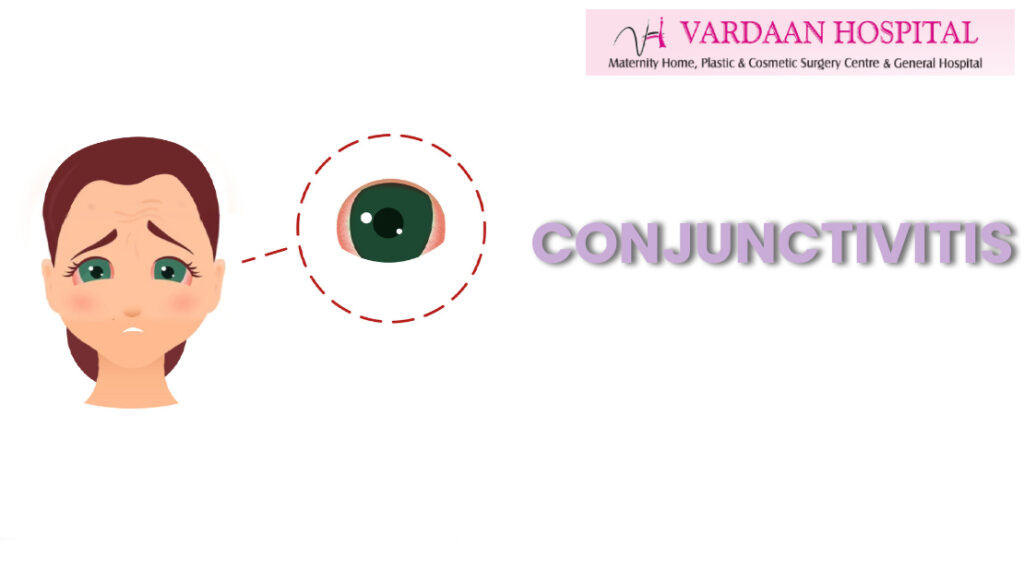
All You Need To Know About Conjunctivitis
Introduction
Conjunctivitis or in common language also known as pink eye occurs when the thin lining that lies on the inner surface of the eyelid and covers the inner white surface of the eye or also called as conjunctiva, appears red or pinkish in color due to inflammation of the blood vessels in it.
What Are The Different Types Of Conjunctivitis?
There are three main types of conjunctivitis which are as follows
- Infectious
- Allergic
- Chemical
What Are The Causes Of Conjunctivitis?
The most recurrent identified causes of conjunctivitis are
- Viruses
- Bacteria
- Allergens
Some other causes include
- Chemical
- Contact lens wear
- Foreign body in eye
- Fungi
- Amoeba and parasites
- External irritants such as dust, smoke, fumes etc.
What Are The Symptoms Of Conjunctivitis?
The symptoms of conjunctivitis can include any of the following
- Pinkish or reddish color in the white of the eyes
- Swelling of the conjunctivita.
- Elevated tear production
- Itching, irritation and/or burning
- Discharge of mucus or pus
- Crusting of eyelids especially in the morning
How Contagious Are Conjunctivitis?
Bacterial and viral pink eye is very contagious. If the person who has conjunctivitis has it and if he/she touches his/her eye and touches your hand followed by you touching your eyes then it can get transferred to you. And as long as the symptoms remain the chance of passing out infection is also present.
Conjunctivitis During Pregnancy
There is nothing special as why conjunctivitis occurs during pregnancy and the reasons are the same as they occur in any person. But your susceptibility increases to catch conjunctivitis increases during your pregnancy period.
How is Conjunctivitis Treated?
The treatment depends on the cause and it must be treated accordingly. Here are some of the available options for you
- Home Remedies: These are not aimed to cure your pink eye but can certainly relieve some of the symptoms which are unrelated to bacteria or virus. These are also safe to use during pregnancy. Examples include applying warm or cold compress, gentle cleansing, avoiding contact lenses and applying green tea bags.
- Over The Counter Medicines: You can take oral anti-histamines to relive the itching/redness and/or Tylenol to lessen your pain if it’s too much.
- Medicated eye drops: Administration of eye drops having anti-biotic can help in case of bacterial infection. But you must ask your gynecologist about which ones are safe during your pregnancy. It may take up to 7 days for you to fully heal from bacterial conjunctivitis when on eye drops. In case of allergic eye drops those containing anti-histaminic drugs can be useful. In case of viral infections if they belong to same category as common cold then no treatment is available and they will fade away on their own in about 7 to 10 days. In isolated cases where variella zoster virus and herpes virus are involved then anti-viral medicines can be prescribed. In case of chemically induced conjunctivitis gently washing with lukewarm water can help relieve the symptoms by washing away the causative chemical.
How To Prevent Conjunctivitis?
- Adopt proper hand washing techniques like washing your hand with soap and water for at least 20 seconds before and after applying any ointment or administering eye drops or if soap is unavailable then use sanitizer having at least 60%w/v of alcohol.
- Avoid temptation to rub or touch eyes frequently as it increases risk of transferring the infection to other eye
- Avoid using the same drop dispenser for infected and non infected eyes.
- Make sure your hands are clean when you attempt to wash any discharge your eyes, use cotton swabs and wash them with detergent and hot water after use and again wash your hands
- Wash your common contact items such as pillowcases, sheets etc with detergent and water and wash your hands after you are done.
- Avoid any contact lenses and make sure you don’t wear them without your doctor’s permission till your infection has completely subsided.
- Clean your eyeglasses with cleansing solution and keep them separate.
- Avoid sharing common things like towel, makeup, lipstick, eye liner with other people as you might pass your infection to others.
- Skip your swimming schedule as swimming pool water commonly contain chlorine which can further irritate your eyes
